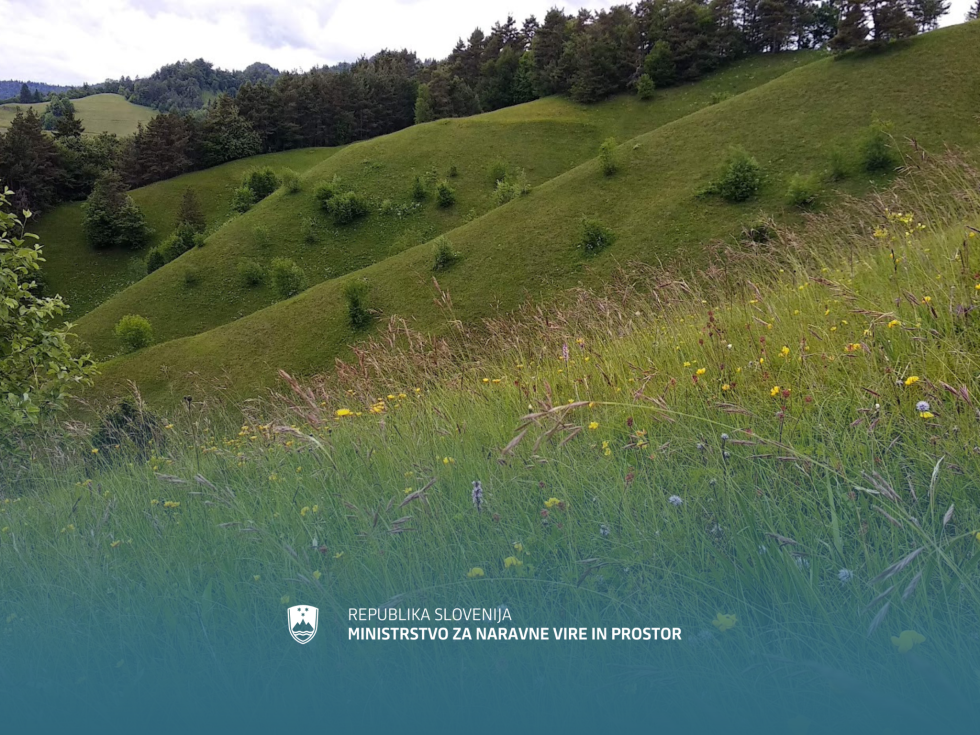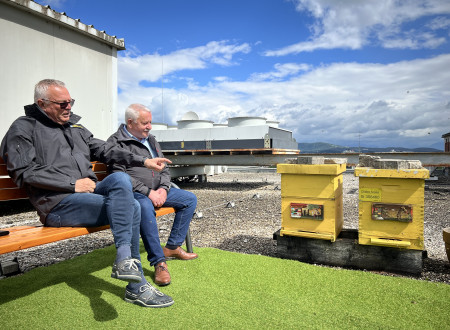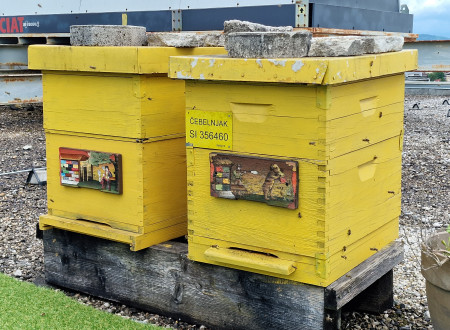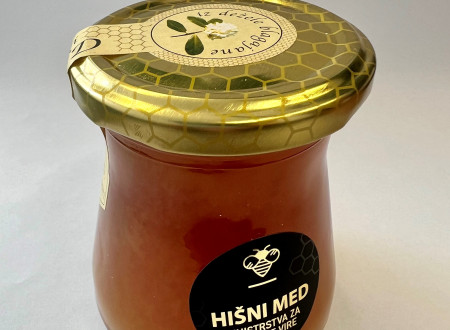The month of May reminds us of our relationship with nature
Protected areas cover 14 per cent of Slovenia’s territory. Slovenia has one national park (Triglav National Park), four regional parks (Kozjansko and Notranjska Regional Parks, Škocjan Caves, and the just established Pohorje Regional Park), and 47 landscape parks which are considered large protected areas, one strict nature reserve, 61 nature reserves, 1,097 natural monuments and 113 monuments of designed nature, which are considered small protected areas. Plants, animals and their habitats are protected in these areas where it is possible to experience an abundance of biodiversity in our geographically exceptionally diverse country. Protected areas are managed in such a way that the experiences they provide are nature-friendly and authentic for visitors.
Slovenia has a rich tradition of nature conservation. More than 100 years have passed since the adoption of the first nature conservation programme in Slovenia – the Memorandum of the Section for the Protection of Nature and Natural Monuments – and this year also marks the 100th anniversary of the signing of the lease agreement for the establishment of the Alpine Conservation Park, the predecessor of the Triglav National Park.
Slovenia established its protected areas on the basis of the national legislation on nature conservation, European directive (Natura 2000), and ratified international treaties (Ramsar Convention on Wetlands and the Convention Concerning the Protection of the World Cultural and Natural Heritage).
Large protected areas and certain small ones are managed by state or municipal public institutions, concessionaires or public utility units. Their most important task is to protect animal and plant species, habitat types, valuable natural features and landscape by means of protection measures. They also regulate the number of visitors and raise public awareness. Supervision over the observance of prescribed regimes is implemented by professional or voluntary nature conservation supervisors.
This year, for the first time, we will also be awarding the National Rado Smerdu Award for the highest achievements in the field of nature conservation and the contribution to the development of the profession in this field.
20 May: World Bee Day
This is the seventh year that bees and other pollinators are the focus of special attention globally on 20 May. In 2017, the United Nations General Assembly (UNGA), at Slovenia’s initiative, declared this day World Bee Day.
Pollinators are declining in number and diversity due to food shortages, climate change, lack of nesting sites, pesticides, and disease. There is no food security without pollinator diversity as at least half of the pollination in agriculture is done by wild pollinators. These are not only an important link in food, they also play a significant role in biodiversity and nature conservation. The most important habitat of pollinators are biodiverse, colourful and flowering meadows, i.e. meadows that are mowed once late in the season or no more than twice. The Ministry of Natural Resources and Spatial Planning therefore supports projects that contribute to improving the condition of grasslands with nature conservation importance.
Slovenia focuses most of its attention on honey bees, and many people do not know that more than 570 species of wild bees (bumblebees and solitary bees) have been found in Slovenia. Important pollinators also include hover flies, butterflies, certain beetles, and wasps. Several international projects are working to improve habitats and raise awareness of the importance of pollinators, with the aim of maintaining pollinator diversity and thus healthier and more resilient ecosystems.
Slovenia is one of the founding members of the global coalition on pollinators. These are the countries that believe that a country-led policy can drive political action and innovative measures to protect pollinators. In cooperation with the Ministry of Agriculture, Forestry and Food, we will continue to monitor wild pollinators in 2025 under the Climate Change Fund.
The National Institute of Biology (NIB) carried out a one-year pilot monitoring of wild pollinators in seven areas: Ljubljana, the Ljubljana Marshes, Lake Cerknica, Celje, Mengeš, Radensko Polje and Sovodenj. A transect survey recorded a total of 461 solitary bees, 49 bumblebees, and 907 hoverflies. The highest density of wild bees was found in the Radensko Polje area, followed by Celje, and Sovodenj, while the lowest density was found in the Lake Cerknica area. The area of Mengeš stands out as the most notable for hoverflies, with at least seven times more specimens recorded than in any other area. This is the first time that a large-scale transect survey of bees has been carried out in Slovenia.
Managers of protected areas also carry out various activities to protect wild pollinators, such as training and practical workshops, e.g. making hotels for wild pollinators, raising awareness about the importance of and threats to the species, and monitoring wild pollinators. These activities also aim to restore and create new grassland habitats – improving the diversity of grassland habitats through late, gradual, and selective mowing.
On the occasion of World Bee Day, the Minister for Natural Resources and Spatial Planning, Jože Novak, together with beekeeper and Mayor of the Municipality of Horjul, Janko Prebil, visited the beehive on the roof of the Ministry.
21 May: European Natura 2000 Day
The day of the largest nature conservation network in the world, Natura 2000, is celebrated on 21 May in all EU member states. On this day in 1992, the LIFE programme and the EU Habitats Directive were adopted. Together with the Birds Directive, the latter became the basis for the European network of protected areas, Natura 2000.
This year also marks the 20th anniversary of Natura 2000 in Slovenia, as we also declared Natura 2000 sites in Slovenia in accordance with the European Union’s obligations when we joined the European Union in 2004.
The establishment of the Natura 2000 network was one of the major measures for the preservation of biodiversity and plays an important role in the conservation of nature and ecosystem services provided by nature (e.g. reduction of air pollution, provision of drinking water, soil erosion control). Slovenia’s accession to the European Union and the designation of Natura 2000 sites also gave us the possibility of benefiting from EU funding for the conservation of these areas. The opportunities for various sectors represent the projects for specific actions on the ground to improve the condition of target animal and plant species and restoration of habitats (e.g. creation of meadows, restoration of watercourses). Communication activities are also supported, including the installation of infrastructure for visitors (natural science educational paths and information centres), which improves the tourist offer of the area.
Preserved or restored areas of nature provide visitors with an array of possibilities for recreation, relaxation and inspiration, while educational institutions are enabled to carry out outdoor classes (guided tours, educational paths). Interventions and various activities are possible at the Natura 2000 sites, but the applicable legislation has to be observed when doing so and appropriate consents or permits must be obtained when this is required.
Natura 2000 is the European social commitment to protect nature. Over the last 20 years, Slovenia has developed a number of good practices in the management of Natura 2000 sites. In 2022, the Slovenian Natura 2000 Prize was awarded for the first time (the European Prize has been awarded since 2012), and this year the Slovenian Natura 2000 Prize will be awarded for the second time.
22 May: International Day for Biological Diversity 2024 – Be Part of the Plan
In 1992, the United Nations Convention on Biological Diversity (CBD) was adopted in Rio de Janeiro. The United Nations Environment Programme (UNEP) has designated 22 May as International Day for Biological Diversity to commemorate the entry into force of the CBD.
This year’s guiding thought Be Part of the Plan for Biological Diversity calls for action to halt and reverse biodiversity loss by supporting the implementation of the Global Biodiversity Framework (GBF).
Numerous projects co-financed by the European Union, the European Economic Area and national funds are implemented in Slovenia, which contribute to the preservation and improvement of the status of species and habitats. Since 2004, more than 90 Natura 2000 management projects have been implemented in Slovenia, bringing together more than 100 national and international organisations. In particular, these include projects from the LIFE programme, the Cohesion Policy and the Interreg cross-border regional cooperation. In addition to preserving or improving the condition of target animal and plant species and restoring habitats, the objectives encompass communication and educational activities, strengthening of knowledge, connectivity and sustainable development of protected areas.
Over the last year, more than ten projects have been successfully completed, restoring various habitats and improving conditions for species. This year, new projects are being launched to complement past efforts to improve habitats for species and habitat types.
One of the largest nature conservation projects in Slovenia, the LIFE integrated project for enhanced management of Natura 2000 in Slovenia (LIFE-IP NATURA.SI), has been managed by the Ministry of Natural Resources and Spatial Planning since 2018 in cooperation with 14 partners from the fields of nature protection, forestry, agriculture and water management. The basic purpose of the project is to contribute to better Natura 2000 management in Slovenia by way of cooperation between various sectors and stakeholders. In addition to the improvements at the national level, the project partners also carry out specific actions on the ground at eight Natura 2000 sites, such as prevention of overgrowth, removal of invasive alien species, restoration and maintenance of a favourable status of water bodies and others.
24 May: European Day of Parks 2024, Vote for Nature
The European Day of Parks is a commemorative day for protected areas across Europe that was launched in 1999 by the federation Europarc to celebrate protected areas throughout Europe. This year’s day, with the slogan Vote for Nature, highlights the importance of protected areas for the development and implementation of policies on nature and their central role in ensuring a sustainable and resilient society in which to live, work, and play.
Nature parks, referred to as large protected areas in the Slovenian Nature Conservation Act, include national, regional, and landscape parks. They are protected by the state, municipalities, or the state and municipalities together, and special protection regimes and prohibitions apply in them.
This year, the Pohorje Regional Park was established. In January, the Government of the Republic of Slovenia adopted the Decree on the Pohorje Regional Park, and by the end of April, the act on the protection had been approved by the municipal councils of the municipalities that are co-founders of the regional park, namely Zreče, Vitanje, Mislinja, Lovrenc na Pohorju, Ruše, and Slovenska Bistrica. The establishment of the Regional Park has protected 52 square kilometres of the upper part of the Pohorje Hills, which lies mainly at altitudes above 1200 metres. It is characterised by its outstanding preserved nature, landscape diversity, and frequent and exceptional natural phenomena.
In Slovenia, protected areas are grouped into Community of Nature Parks of Slovenia, which has upgraded the European Day of Parks with the Week of Nature Parks of Slovenia. From 22 to 29 May, the celebrations will include a number of events, most of them free of charge, all over Slovenia. Slovenian nature parks are certainly exceptional locations that offer a diverse range of experiences linked to nature.
.





